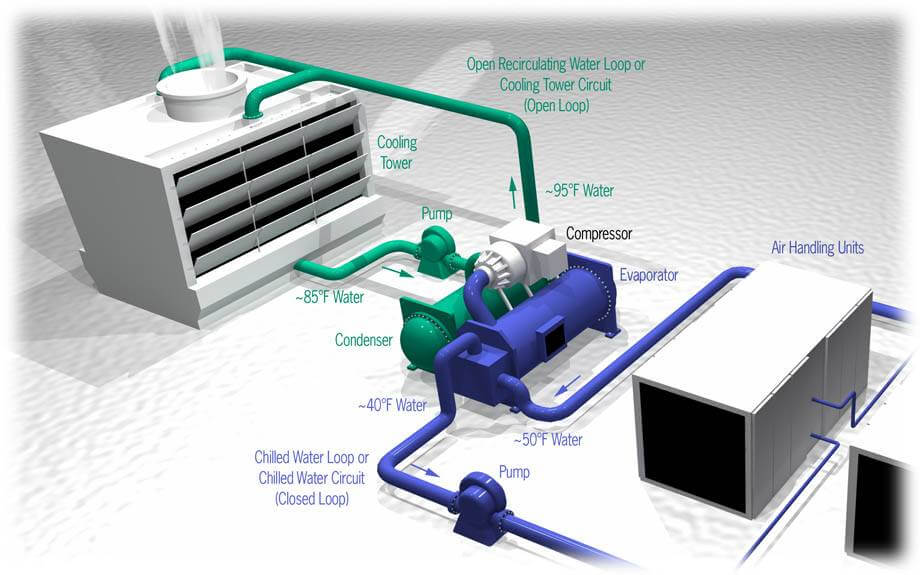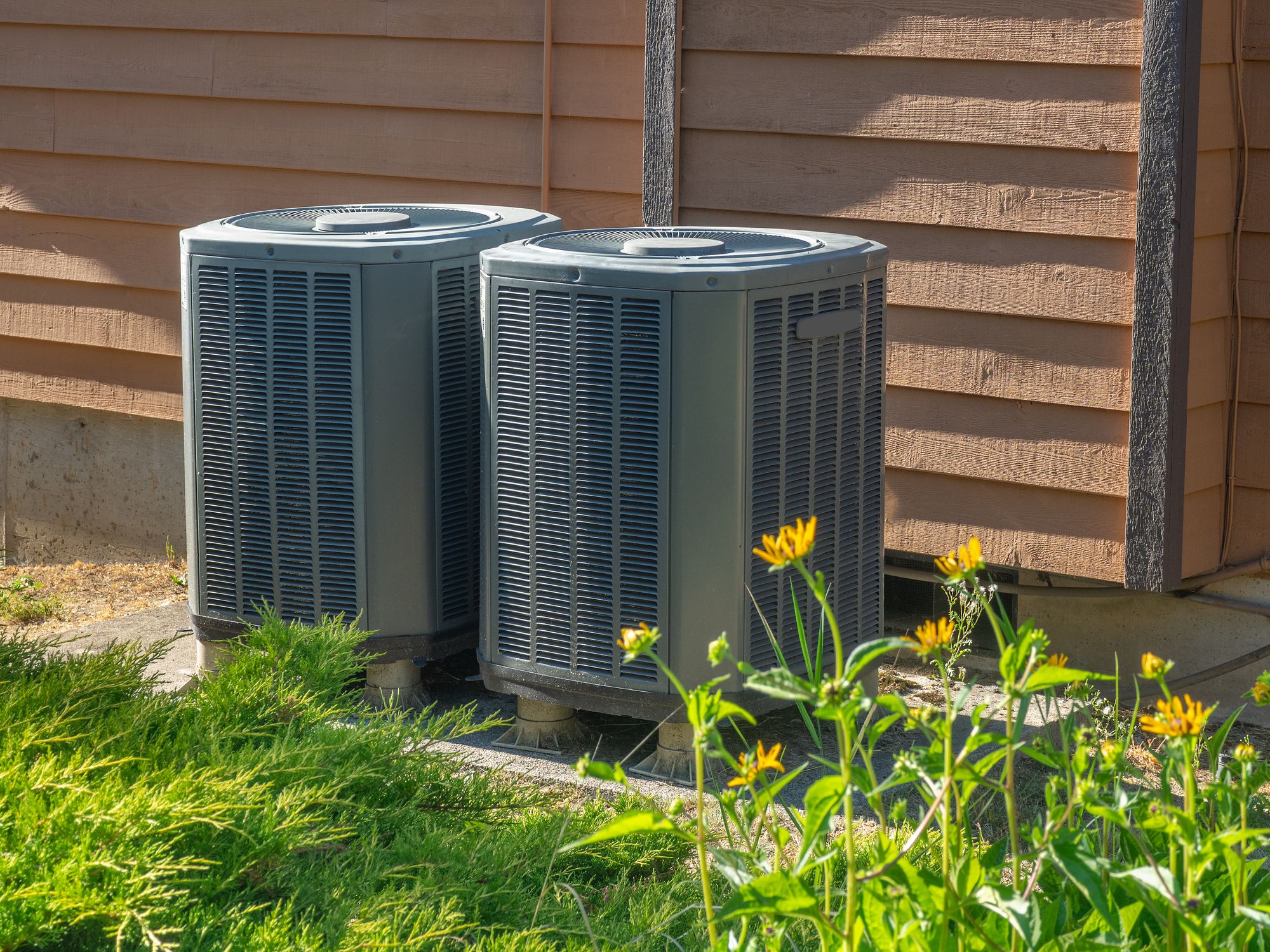Learn why HVAC experts are critical for sustained system performance
Exploring the Crucial Components of an Efficient Heating And Cooling System
An efficient cooling and heating system is improved numerous crucial parts that function in consistency. Each part, from the thermostat to the ductwork, plays an important duty in keeping convenience and power effectiveness. Understanding these components is critical for optimizing performance and improving interior air top quality. As one takes a look at these parts, the elaborate relationships between them reveal understandings into enhancing general system effectiveness. What certain aspects add most to this efficiency?
The Duty of the Thermostat in HVAC Performance

Typically forgotten, the thermostat plays an essential role in the effectiveness of A/c systems. This small gadget works as the key nerve center, managing temperature level settings and making sure excellent comfort within a room. By precisely sensing the ambient temperature level, the thermostat communicates with the heating, air flow, and air conditioning devices to maintain the preferred environment
A reliable thermostat reduces energy consumption by activating the cooling and heating system only when needed, consequently stopping excessive heating or cooling. Modern smart and programmable thermostats enhance this efficiency even more by permitting users to set routines and remotely change settings, adapting to daily routines.
Additionally, the placement of the thermostat is vital; improper location can bring about imprecise temperature level readings, resulting in inefficient procedure. Generally, a well-functioning thermostat not only enhances convenience however likewise contributes substantially to energy cost savings and the long life of the HVAC system.
Recognizing the Relevance of Air Filters
Air filters offer a crucial feature in cooling and heating systems by assuring that the air flowing within a space continues to be healthy and tidy. These filters catch dust, irritants, and other contaminants, stopping them from being recirculated throughout the setting. By capturing these particles, air filters contribute to boosted indoor air top quality, which can significantly profit owners' wellness, especially those with allergies or respiratory problems.
In addition, keeping clean air filters enhances the efficiency of a/c systems. Clogged up filters can restrict air movement, triggering the system to function harder to maintain preferred temperature levels, resulting in raised energy intake and higher utility bills. On a regular basis replacing or cleansing filters is a vital upkeep step that can extend the lifespan of cooling and heating tools. Ultimately, understanding the significance of air filters permits homeowners and building supervisors to take proactive procedures to ensure a well-functioning, effective cooling and heating system that advertises a comfortable and safe interior environment.

The Capability of the Heating System and Warm Pump
Heaters and heatpump are vital components of HVAC systems, responsible for giving heat throughout chillier months. Furnaces run by heating air through burning or electric resistance, after that distributing it throughout the home using air ducts. They commonly offer rapid home heating and can be fueled by all-natural gas, electrical power, or oil, depending on the system type.
Conversely, warm pumps move warm as opposed to produce it. They remove heat from the outdoors air or ground, even in low temperature levels, and move it indoors. HVAC experts. This twin functionality permits heatpump to additionally give cooling in warmer months, making them functional options for year-round climate control
Both systems require correct maintenance to assure efficiency and durability. While heaters master severe cool, heatpump can be helpful in moderate climates. Comprehending their distinctive performances aids home owners in picking one of the most appropriate choice for their heating look at these guys needs.
Discovering the Cooling Unit
The cooling unit is an important component of a/c systems, readily available in various kinds to match different requirements. Understanding the performance rankings of these units is essential for making notified choices regarding energy usage and expense. This section will discover the diverse types of a/c Get the facts unit and clarify just how efficiency rankings influence performance.
Kinds Of Air Conditioners
While numerous factors influence the selection of a/c systems, recognizing the various types offered is important for house owners and building managers alike. Central air conditioners are developed to cool whole homes or structures, utilizing a network of ducts for airflow. Window devices supply an even more local service, ideal for small rooms or solitary spaces. Portable air conditioners give versatility, enabling customers to move the system as required. Ductless mini-split systems are an additional alternative, integrating the effectiveness of main systems with the ease of zoning, as they call for no ductwork. Geothermal systems harness the earth's temperature for energy-efficient cooling. Each kind includes distinctive advantages, making notified choices necessary for effective environment control.

Effectiveness Scores Described
Comprehending performance scores is crucial for selecting the best a/c unit, as these metrics supply insight right into the system's efficiency and energy usage. The most common score for air conditioners is the Seasonal Power Performance Proportion (SEER), which measures the cooling result throughout a normal air conditioning season divided by the overall electric energy input. A higher SEER indicates far better efficiency. Furthermore, the Energy Performance Ratio (EER) is used for gauging performance under details problems. Another vital metric is the Energy Celebrity qualification, which indicates that a device satisfies strict energy effectiveness standards. By assessing these rankings, customers can see here now make enlightened options that not just maximize convenience but additionally reduce energy expenses and ecological impact.
The Relevance of Ductwork and Air flow
Effective ductwork style and air movement monitoring play critical functions in the total efficiency and performance of cooling and heating systems. Appropriate ductwork warranties that conditioned air is dispersed evenly throughout a space, decreasing temperature level variations and improving comfort. Properly designed air ducts minimize resistance to air movement, lowering the work on cooling and heating equipment and eventually reducing power intake.
Air flow monitoring includes strategically positioning vents and signs up to boost the flow of air. This prevents typical issues such as chilly or warm areas, which can occur when air flow is obstructed or inadequately balanced. In addition, the right duct materials and insulation can additionally improve efficiency by reducing warm loss or gain throughout air transit.
A reliable ductwork system not only adds to power financial savings but can likewise extend the lifespan of HVAC devices by minimizing unneeded strain (HVAC experts). Consequently, recognizing the relevance of ductwork and airflow is crucial for attaining peak a/c system performance
Routine Maintenance Practices to Enhance Performance
Regular maintenance techniques are important for ensuring peak performance of a/c systems. These practices consist of routine assessments, cleansing, and needed fixings to maintain the system running successfully. Frequently altering air filters is essential, as clogged filters can block air movement and decrease performance. In addition, specialists should examine and clean evaporator and condenser coils to stop overheating and energy wastefulness.
Yearly expert examinations are also advised, as trained service technicians can determine possible issues before they intensify. Lubricating moving components decreases damage, adding to a longer life-span for the system. Making certain that the thermostat operates properly aids in maintaining ideal temperature control.
Regularly Asked Concerns
How Typically Should I Change My Thermostat?
Thermostats ought to generally be replaced every 5 to one decade, depending on use and innovation developments. Routine checks are advisable to ensure peak efficiency, specifically if experiencing irregular temperature level control or enhanced power costs.
What Dimension Air Filter Is Best for My Heating And Cooling System?
The very best dimension air filter for an a/c system differs by unit design. Generally, it's important to consult the owner's guidebook or check the existing filter dimensions to assure peak performance and air high quality.
Can I Install a Heatpump Myself?
Mounting a warmth pump separately is possible for experienced individuals, yet it needs understanding of local codes and electrical systems. Hiring an expert is suggested to assure proper installment and perfect system efficiency.
Just how Do I Know if My Ductwork Is Efficient?
To establish ductwork performance, one need to examine for leaks, measure air movement at vents, examine insulation quality, and examine temperature differences between supply and return ducts. Professional evaluations can give comprehensive understandings right into total performance.
What Are Signs My A/c Needs Immediate Maintenance?
Signs that an a/c system needs instant maintenance include uncommon sounds, irregular temperatures, boosted energy costs, undesirable odors, and regular biking. Resolving these issues promptly can avoid more damage and guarantee height system efficiency.
Air filters serve a crucial function in A/c systems by ensuring that the air circulating within a space continues to be healthy and tidy. Additionally, keeping clean air filters enhances the efficiency of HVAC systems. Ductless mini-split systems are an additional option, incorporating the efficiency of central systems with the comfort of zoning, as they need no ductwork. Recognizing performance ratings is vital for choosing the ideal air conditioning unit, as these metrics give understanding right into the system's efficiency and energy consumption. The best size air filter for a HVAC system differs by unit layout.